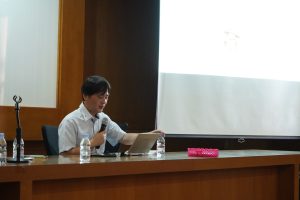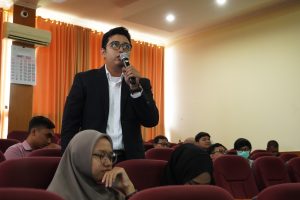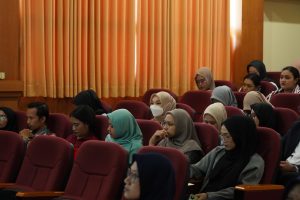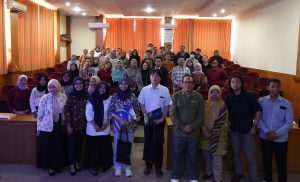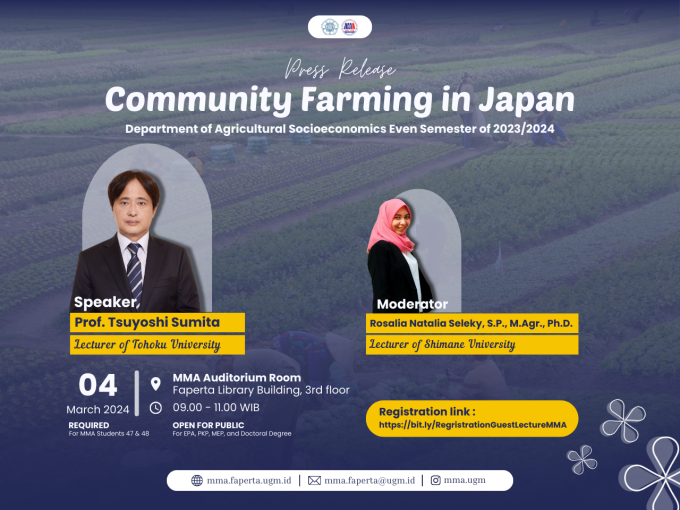
Master of Agribusiness Management (MMA UGM) held another guest lecture on 4 March 2024 with the title “Community Farming in Japan” which reviewed community and contract farming with speaker Prof. Tsuyoshi Sumita as Prof Major Farm Business Management from Tohoku University.
Prof Tsuyoshi, known as Tsuyoshi-sensei, explained the definition of community farming, the difference between community farming and contract farming, and its history and sustainability in Japan. Agricultural conditions in Japan and Indonesia have similar problems regarding the dominant age of farmers, which is 65 years old on average, and the low interest of the younger generation to enter the agricultural sector.
The history of community farming in Japan stems from a shortage of labour during the cultivation process, this condition makes farming households complement each other by exchanging equal labour (community relationship “Yu”). The system in community farming in Japan is a system of co-operation from being a part of the overall production process carried out by farmers in a community (village). The advantages of contract farming in Japan are that farmers can have access to the use of machinery, coordinated cultivation processes and financial turnover. The results of agricultural production are then marketed collectively through cooperatives. Furthermore, there are agreements and norms that must be adhered to such as if farmers who have joined community farming do not perform according to their duties, they must pay a certain amount of compensation to the community.
Community farming in Japan is an inspiration for rural farming systems in Indonesia to be coordinated and achieve efficiency, especially in terms of costs. Indonesia has a great opportunity to realise a system similar to community farming, as it has strong social capital.
